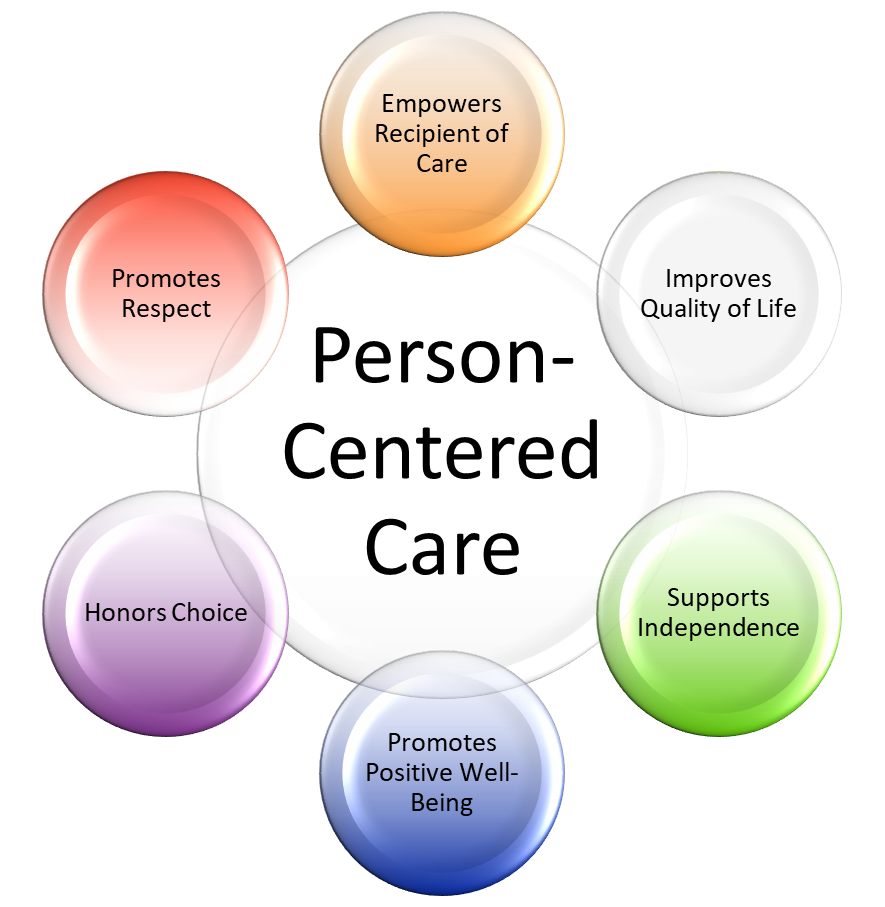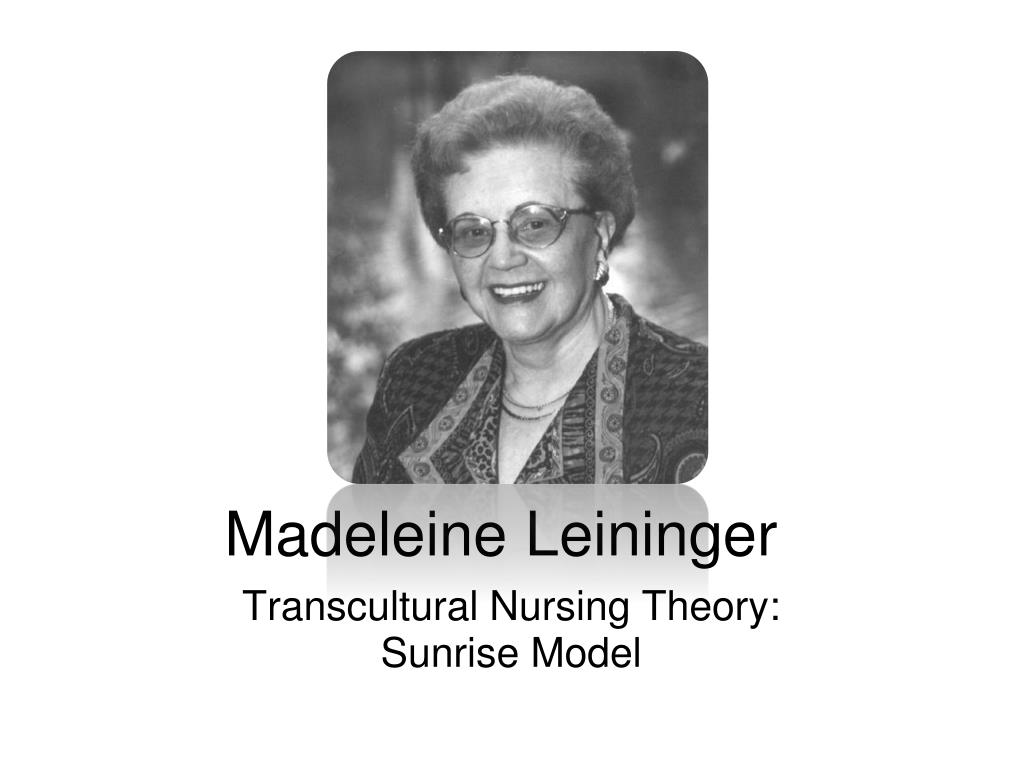Transcultural Nursing Theory
Transcultural Nursing Theory
Introduction
Transcultural nursing theory, conceived by Madeleine Leininger in the 1950s, represents a pivotal advancement in the nursing discipline, advocating for cultural competence in healthcare delivery. This theory emerged from Leininger’s firsthand experiences in diverse cultural settings, underscoring the necessity of integrating cultural considerations into nursing care. Over time, the theory evolved into a comprehensive framework that addresses the complexities of providing care to individuals from various cultural backgrounds. The journey through transcultural nursing theory unfolds as a transformative force, guiding nurses to navigate the intricate intersection of culture and healthcare with skill and sensitivity.
History of Transcultural Nursing Theory
The historical trajectory of transcultural nursing theory traces back to Madeleine Leininger’s groundbreaking work in the 1950s. Leininger, driven by her experiences in diverse cultural settings, recognized the imperative of incorporating cultural nuances into nursing care. Initially labeled as “cultural care theory,” Leininger’s framework evolved into the comprehensive transcultural nursing theory we recognize today.
Leininger’s journey began with an acknowledgment of cultural diversity as an essential aspect of healthcare. This recognition spurred her to develop a theory that would guide nurses in delivering culturally competent care. The theory underscores the significance of cultural awareness, knowledge, and skills in nursing education and practice.
As transcultural nursing theory took shape, it aimed to bridge gaps in healthcare by emphasizing the need for cultural competence. This involved understanding and respecting the diverse cultural beliefs, values, and practices of patients. The theory’s core concept is a call for nurses to tailor care plans based on individual cultural contexts, ensuring a more holistic and culturally sensitive approach to patient care.
The history of transcultural nursing theory reflects an evolution prompted by the growing awareness of the influence of culture on health. Leininger’s pioneering efforts laid the foundation for a paradigm shift in nursing, where cultural competence became integral to providing effective and patient-centered care in a world marked by diverse cultural landscapes.
Application of Transcultural Nursing Theory in Practice
The application of transcultural nursing theory in practice is instrumental for healthcare professionals aiming to deliver culturally competent care. It involves a dynamic process that commences with cultural assessments. Nurses must delve into each patient’s cultural background, considering beliefs, communication styles, and healthcare practices. This information serves as the foundation for tailoring care plans to align with individual cultural contexts.
Cultural assessments are not one-time endeavors but continuous efforts to stay attuned to evolving patient needs. Transcultural nursing theory underscores the importance of ongoing cultural competence education for nurses. This involves staying informed about various cultures, traditions, and healthcare practices. This continuous learning process ensures that nursing professionals are well-equipped to navigate the intricacies of diverse patient populations.
Furthermore, the theory encourages flexibility in nursing practice. It recognizes that standardized interventions may not universally apply and advocates for a personalized approach. This flexibility ensures that care is not only medically effective but also culturally sensitive, thereby enhancing the overall well-being of the patient.
Another critical aspect of the theory’s application is its emphasis on open communication and collaboration within healthcare teams. By fostering a culture of mutual respect and understanding, transcultural nursing theory contributes to cohesive teams that can effectively navigate cultural complexities. This collaborative approach extends beyond individual patient care, creating a supportive and inclusive work environment.
The application of transcultural nursing theory is a multifaceted process. It begins with a thorough understanding of individual cultural backgrounds through ongoing assessments. This knowledge, coupled with a commitment to continuous learning, equips nurses to provide flexible and culturally sensitive care. The theory’s influence extends beyond individual patient interactions, fostering collaborative and inclusive healthcare environments. Ultimately, the application of transcultural nursing theory enhances the quality of care, promoting a more culturally competent and patient-centered approach within the nursing profession.
Impact on Diversity Experienced in Nursing
The impact of transcultural nursing theory on diversity within the nursing profession is profound, shaping a more inclusive and culturally competent workforce. As healthcare systems become increasingly diverse, nursing professionals need to reflect this diversity. Embracing transcultural nursing theory contributes to diversity in nursing education and recruitment, fostering a workforce that mirrors the varied communities it serves.
A diverse nursing workforce is advantageous on multiple fronts. It not only enriches the profession by bringing forth a spectrum of cultural knowledge and experiences but also enhances the ability of nurses to understand and address the unique needs of a broad patient population. The cultural diversity within the nursing workforce serves as an invaluable resource in navigating the intricate intersection of culture and healthcare.
Moreover, transcultural nursing theory plays a pivotal role in breaking down cultural barriers within nursing teams. It encourages open communication, mutual respect, and the sharing of cultural insights among healthcare professionals. This collaborative approach contributes to a supportive and inclusive work environment, wherein diverse perspectives are valued. This inclusive environment, in turn, has a positive impact on patient care, as healthcare teams can draw from a collective pool of cultural competence.
The promotion of diversity within the nursing profession aligns with the broader goals of healthcare institutions to provide equitable and patient-centered care. A diverse nursing workforce ensures that healthcare professionals are well-versed in addressing the unique cultural aspects of patient care. This alignment between the workforce and patient demographics establishes a foundation for culturally sensitive healthcare delivery.
Furthermore, transcultural nursing theory encourages healthcare institutions to implement inclusive policies and practices. These may include initiatives to recruit nurses from diverse backgrounds, provide cultural competency training, and create an environment that fosters cultural awareness. By actively addressing diversity, healthcare institutions can create an atmosphere that values and celebrates differences, ultimately contributing to improved patient outcomes.
In practical terms, the impact of transcultural nursing theory on diversity extends beyond recruitment efforts. It calls for a transformation in the organizational culture of healthcare institutions, where diversity and cultural competence are embedded in the core values. This shift is crucial for dismantling systemic barriers that may hinder the full integration of diversity within nursing teams.
The impact of transcultural nursing theory on diversity within the nursing profession is multifaceted and far-reaching. It not only promotes diversity in nursing education and recruitment but also fosters an inclusive work environment that enhances patient care. By acknowledging and embracing the richness of cultural diversity, transcultural nursing theory contributes to a nursing workforce that is better equipped to provide culturally competent and person-centered care in an increasingly diverse healthcare landscape.

How Transcultural Nursing Theory Promotes Person-Centered Practice
The practical application of transcultural nursing theory is instrumental for healthcare professionals striving to provide culturally competent care. This application begins with cultural assessments, a dynamic process involving an in-depth exploration of each patient’s cultural background. Nurses consider beliefs, communication styles, and healthcare practices, establishing a foundation for tailoring care plans to align with individual cultural contexts.
Cultural assessments aren’t one-time endeavors; they are continuous efforts to stay attuned to evolving patient needs. Transcultural nursing theory places a strong emphasis on ongoing cultural competence education for nurses. This involves staying informed about various cultures, traditions, and healthcare practices. Continuous learning ensures that nursing professionals are well-equipped to navigate the intricacies of diverse patient populations.
Flexibility in nursing practice is another critical aspect advocated by the theory. Recognizing that standardized interventions may not universally apply, it encourages a personalized approach. This flexibility ensures that care is not only medically effective but also culturally sensitive, thereby enhancing the overall well-being of the patient.
Furthermore, the theory promotes open communication and collaboration within healthcare teams. By fostering a culture of mutual respect and understanding, transcultural nursing theory contributes to cohesive teams that can effectively navigate cultural complexities. This collaborative approach extends beyond individual patient care, creating a supportive and inclusive work environment.
The practical implementation of transcultural nursing theory is a multifaceted process. It commences with a thorough understanding of individual cultural backgrounds through ongoing assessments. This knowledge, coupled with a commitment to continuous learning, equips nurses to provide flexible and culturally sensitive care. The theory’s influence extends beyond individual patient interactions, fostering collaborative and inclusive healthcare environments.
The impact of applying transcultural nursing theory in practice is evident in the quality of care provided. When nurses tailor care plans based on individual cultural contexts, it ensures a more holistic and culturally sensitive approach to patient care. This approach not only enhances patient satisfaction but also contributes to improved health outcomes.
Moreover, its practical application contributes to reducing health disparities among diverse populations. By acknowledging and addressing cultural factors that influence health, nurses can work towards delivering equitable care. This is especially crucial in a healthcare landscape where disparities based on cultural backgrounds persist.
Its application in practice is indispensable for healthcare professionals navigating the complexities of culturally diverse patient populations. It promotes continuous learning, flexibility in care delivery, and collaborative teamwork, fostering a more inclusive and culturally competent approach to healthcare. The practical integration of transcultural nursing theory contributes significantly to the overall well-being of patients and advances the goals of achieving equitable and person-centered care.

Conclusion
Transcultural nursing theory stands as a pivotal guide for healthcare professionals, emphasizing cultural competence in practice. It originated from Madeleine Leininger’s visionary work in the 1950s, evolving into a comprehensive framework that prioritizes understanding and respecting diverse cultural contexts. The theory’s practical application involves continuous cultural assessments, fostering ongoing learning for nurses. It advocates for flexibility in care delivery, ensuring not only medical effectiveness but also cultural sensitivity. This approach contributes to a more inclusive and supportive work environment, enhancing collaboration within healthcare teams. The impact extends beyond the nursing profession, influencing diversity, and promoting person-centered care. By acknowledging and embracing the richness of cultural diversity, transcultural nursing theory contributes to a compassionate and globally sensitive approach to healthcare delivery. In essence, it serves as a transformative force, guiding healthcare professionals in navigating the intricate intersection of culture and healthcare with skill and sensitivity.
References
Leininger, M. (2002). Theoretical and Philosophical Foundations of Transcultural Nursing. In Transcultural Nursing: Concepts, Theories, Research & Practice (pp. 3-17). New York: McGraw-Hill.
https://www.researchgate.net/publication/236353015_Theoretical_and_philosophical_foundations_of_transcultural_nursing
Purnell, L. D. (2016). The Purnell Model for Cultural Competence. In Transcultural Perspectives: A Global View of the Nursing Profession (pp. 81-92).
https://www.ncbi.nlm.nih.gov/books/NBK551731/




